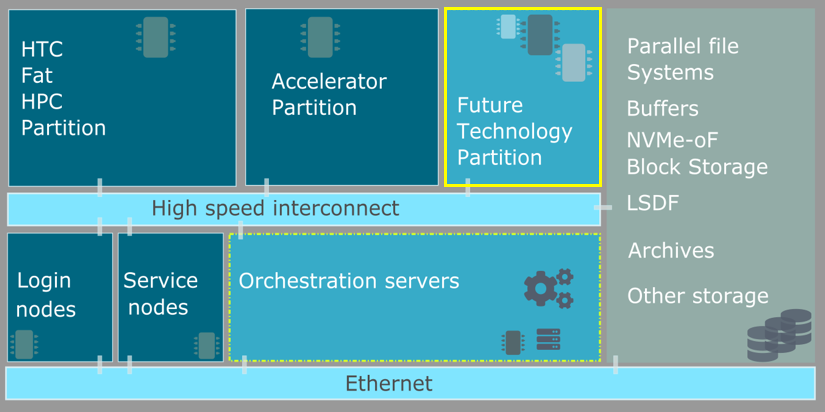Overview¶

Welcome to the user documentation of the Future Technologies Partition (FTP).
The Future Technologies Partition is a hardware and software testbed containing a wide variety of system built around cutting-edge and novel hardware. New nodes will be added on a regular basis and in a much more timely fashion than would be possible in the large-scale production systems like Horeka.
The installation is aimed at individual users and research communities who want to
-
future-proof their codes by making sure that the build on more than one architecture,
-
port their codes to architectures like custom-made ARMv8 processors and GPUs from different manufacturers,
-
and/or perform research on novel architectures.
The Future Technologies Partition is also integrated into our Continuous Integration Infrastructure.
Getting access¶
All registered HoreKa users can apply for access to the Future Technologies Partition.
Please contact the operations team through the Support channels and specify what kind of activities (porting, performance optimization, research etc.) you would like to perform on the systems.
The Future Technologies Partition is currently split into two different cluster installations with different hardware components, different cluster management software stacks and different login nodes.
You are always granted access to the FTP as a whole, but you have to use different login nodes and there will be minor and major differences between both systems and even individual nodes, depending on which hardware they use. For more details please see the Hardware Overview, Software and Modules, Batch System and Software Development & Performance sections.
New DNS hostnames
Since the maintenance between 29.11.2022 and 30.11.2022 the DNS hostname for the FTP-A64 cluster is now ftp-a64-login.scc.kit.edu.
Acknowledgment¶
Use of the Future Technologies Partition is free of charge, but the resource has to be acknowledged on all publications using the following statement:
"This work was performed on the NHR@KIT Future Technologies Partition testbed funded by the Ministry of Science, Research and the Arts Baden-Württemberg and by the Federal Ministry of Education and Research."